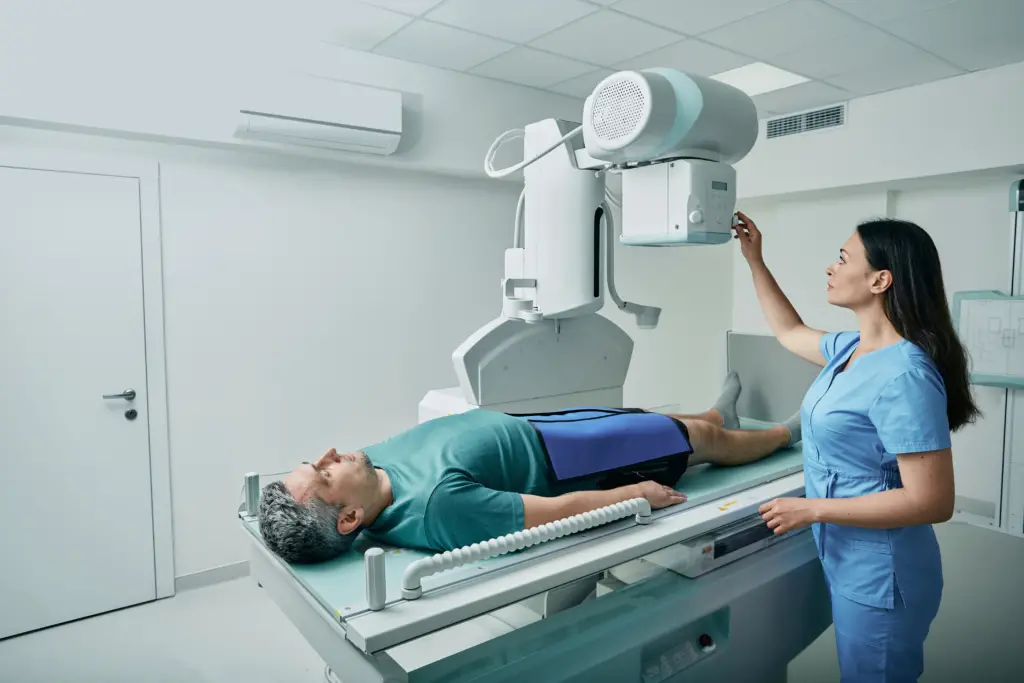In the vast medical imaging and diagnostics world, traveling radiology cath labs stand as a beacon of innovation and mobility. Their duty extends beyond traditional medical settings, offering a unique blend of expertise, precision, and adaptability.
But what exactly is the duty of a traveling radiology cath lab?
Let’s take a detailed journey into this fascinating realm.
The Duty of a Traveling Radiology Cath Lab: A Deep Dive
Understanding the duty of a traveling radiology cath lab is crucial for both medical professionals and patients. At its core, it revolves around providing high-quality cardiac catheterization services on the move, ensuring that even the remotest of areas have access to essential diagnostic procedures.
- Cardiac Catheterization Explained: This is a medical procedure used to diagnose and treat certain cardiovascular conditions. By inserting a catheter into a large blood vessel that leads to your heart, doctors can conduct a range of tests and procedures.
- Why the Need to Travel?: Not all medical facilities have a cath lab. Traveling labs ensure that cardiac catheterization services reach patients in remote areas or facilities undergoing renovations.
Benefits of a Mobile Cath Lab
Why have mobile units gained so much traction? The benefits are multifold:
- Accessibility: One of the prime advantages. Patients in rural areas don’t have to travel miles to get diagnosed.
- Cost-Efficiency: Hospitals can save on the massive investment required to set up a permanent lab.
- Flexibility: It caters to hospitals undergoing renovations or those facing an influx of patients.
Challenges Faced by Radiology Cath Lab Technicians
Like any profession, there are hurdles to overcome:
- Equipment Handling: Transporting sensitive equipment requires utmost care.
- Changing Work Environments: Adapting to different settings can be daunting.
- Logistical Issues: Coordinating between multiple locations can be challenging.
Qualifications and Training
What does it take to be part of such a dynamic field?
- Educational Background: A degree in radiologic technology or a related field.
- Specialized Training: Technicians often undergo training specific to cardiac catheterization.
- Licensing and Certification: Most states and employers require technicians to be licensed or certified.

Comparing Stationary vs. Traveling Cath Labs
Understanding the key differences:
- Infrastructure: Permanent labs are more spacious, while mobile labs are compact.
- Equipment: While both have state-of-the-art equipment, mobile labs prioritize portability.
- Operational Costs: Traveling labs might have added transportation costs but save on infrastructure investments.
Real-life Experiences of Technicians
What’s it really like on the ground?
- Joy of Reaching the Unreachable: Many technicians find fulfillment in serving remote areas.
- The Thrill of Adaptability: Every day is different, and that can be both a challenge and a thrill.
Future of Traveling Radiology Cath Labs
With advancements in technology, what does the future hold?
- Technological Upgrades: Expect more compact and efficient equipment.
- Wider Reach: As awareness grows, more regions will have access to these services.
FAQs
What is a traveling radiology cath lab? A traveling radiology cath lab is a mobile unit equipped to provide cardiac catheterization services to various locations.
How is it different from a stationary cath lab? While the core function remains the same, a traveling lab is portable and caters to areas without a permanent lab.
Why are they essential? They ensure that even remote areas have access to crucial cardiac diagnostic services.
What challenges do technicians face? They deal with equipment handling, changing work environments, and logistical issues.
Are mobile cath labs safe? Yes, they adhere to strict safety and hygiene standards, ensuring patient safety.
How can one become a technician in a mobile cath lab? One needs a degree in radiologic technology, specialized training, and appropriate certification.
Conclusion:
The duty of a traveling radiology cath lab is pivotal in bridging the healthcare gap, ensuring that essential cardiac diagnostic services reach every corner. As technology advances and awareness grows, we can expect these mobile labs to play an even more significant role in global healthcare.


